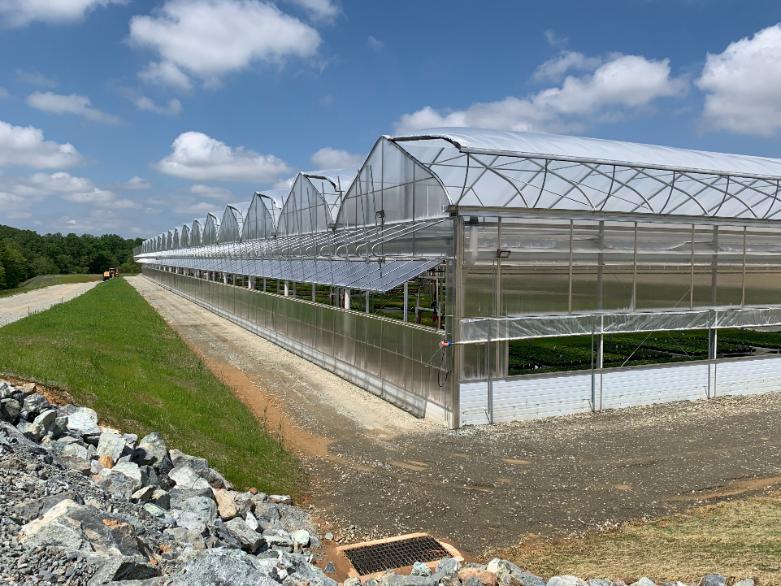7 Ways to Train the Next Generation for Success in your Family Greenhouse Business
There is a startling statistic: 65% of family businesses fail in the second generation, and 90% fail with the third generation. And yet family farms and family greenhouses perform much better than most family businesses.
I have done some research on this and come up with my theories on why family greenhouse businesses perform better in inter-generational models than other businesses. Below are best practices I have noticed both from growing up in a family business environment and from talking to successful multi-generational greenhouse families.
1. Start them Young
Warren Buffet is said to have bought his first stock at 12 years old, and he will tell you he started too late. Most successful businesses have a passionate, dedicated leader. If you are a first generation business, you started because this is something you love, this is something you enjoy working, days, nights, and weekends. This is particularly true for greenhouse operations and other farms where you can’t just leave your crop and forget about it while you are on vacation. So if you hope to inspire the same kind of passion in your children start them young. My 6 year old begs to help me work - “working is fun” he says. Governments have instituted minimum age requirements for working in most businesses which hampers those of us in manufacturing from getting our kids on the factory floor, but greenhouses and farms have so far escaped much of this regulation. Take advantage of it; give your children the responsibility of growing two or three plants, helping assemble boxes, building a web site page, write a blog, or monitoring the heating costs.
2. Encourage the Entrepreneurial Spirit
There is something noble about stepping up to a challenge, taking a risk, and putting everything you have into making a success. There is courage and strength in accepting a failure and pushing through to a greater success. So whether it is a lemonade stand, an art sale, a plant sale at school, or offering to pull the neighbor’s weeds, encourage your children to do it themselves. Loan them the seed money (ie. To buy lemons and sugar ) or better yet have them take it from their allowance. Celebrate their successes, and allow them to learn from their failures.
3. Grow their responsibilities as their capabilities and experience grow
If your son started in the greenhouse in charge of growing 2 plants for his Mother’s Day gift, let him be responsible for watering a bench next. If your daughter started assembling boxes, next she could help load the plants in boxes, and after that she is responsible for picking plants for shipping. If you have started them young you have ample opportunity to make small increases that give added pride of accomplishment and also broaden their knowledge of the business. Greenhouses have lots of hands on opportunities, and lots of opportunities to see something accomplished, to watch the fruits of your labor grow ( literally if you happen to be growing tomatoes, cucumbers, or peppers)
4. Hold your children Accountable like you would any other employee
My husband teaches high school in the city, and it is a frequent complaint of the teachers that parents are more interested in their children having an easier life than teaching them the consequences of their actions. Maybe because a greenhouse product is perishable, there is a greater sense of understanding that consequences are real. If your daughter is responsible to water the plants and she doesn’t, they die, there is no second chance. When your son does a good job debudding the mums, he sees the positive result in the beautiful flowers he has helped create. If you want success for your children teach them that what they do really matters.
5. Do not Specialize too Young
Remember your first childhood dream job? When my son was 3 he proudly announced he was going to be a dentist and a lion tamer. I wisely pointed out that could be a whole new market: animal dentistry! “No!” He was not going to have me changing his career aspirations; they were separate and both totally achievable.
6. Be Open to Change
Everything changes. What you have to do today to be successful in your business is almost certainly different than what your father had to do. Your children will run a greenhouse business in a different market place. This means possibly different shipping concerns, different production techniques, certainly a whole new realm of marketing requirements.
7. Give them the Confidence to choose another Path
We have all seen it, the person stuck in a loveless job, putting in the hours out of duty or fear to do something different, but without any passion or real interest this is doomed to failure. My parents had 3 children, the other two have chosen careers outside of the business. Agriculture is not an easy life, and as many times as I have heard customers tell me they hope their children will one day take over the business, I have also heard someone lament that they hope their child takes another path. In the end what we all hope for is that our children pick the path that is right for them. So provide the opportunities to learn your greenhouse business without the push to join. If you have inspired a passion and your child takes up the challenge you will have a greenhouse business capable of thriving throughout the next generation.
Leigh Coulter is a third generation entrepreneur, second generation greenhouse manufacturer, whose childhood business ventures included, comic book production and sales, weed removal, selling sea shells by the resort casino entrance, and lemonade stands. While getting her business degree she owned and operated a gift service and retail store, before being lured into the family business.








